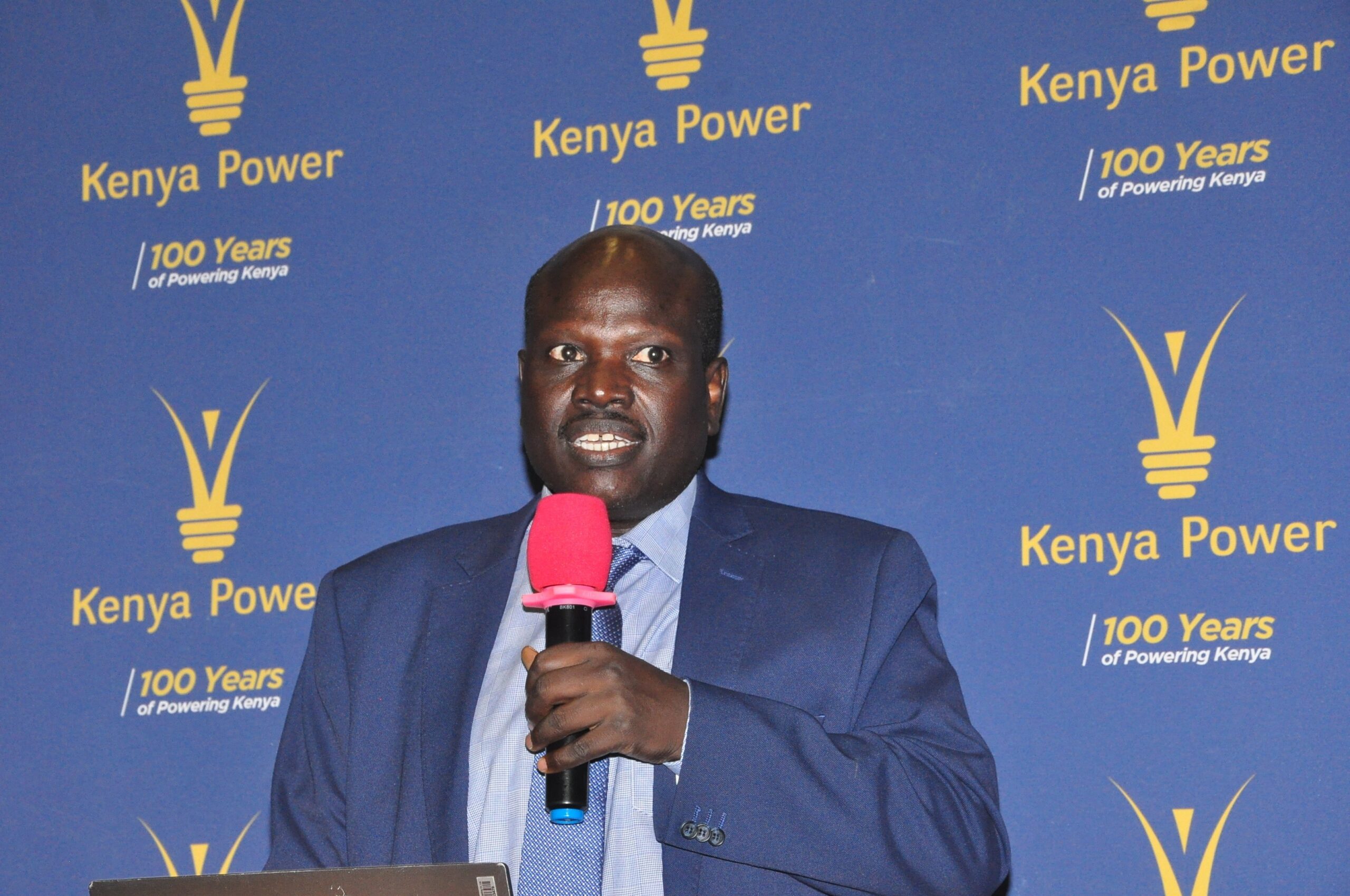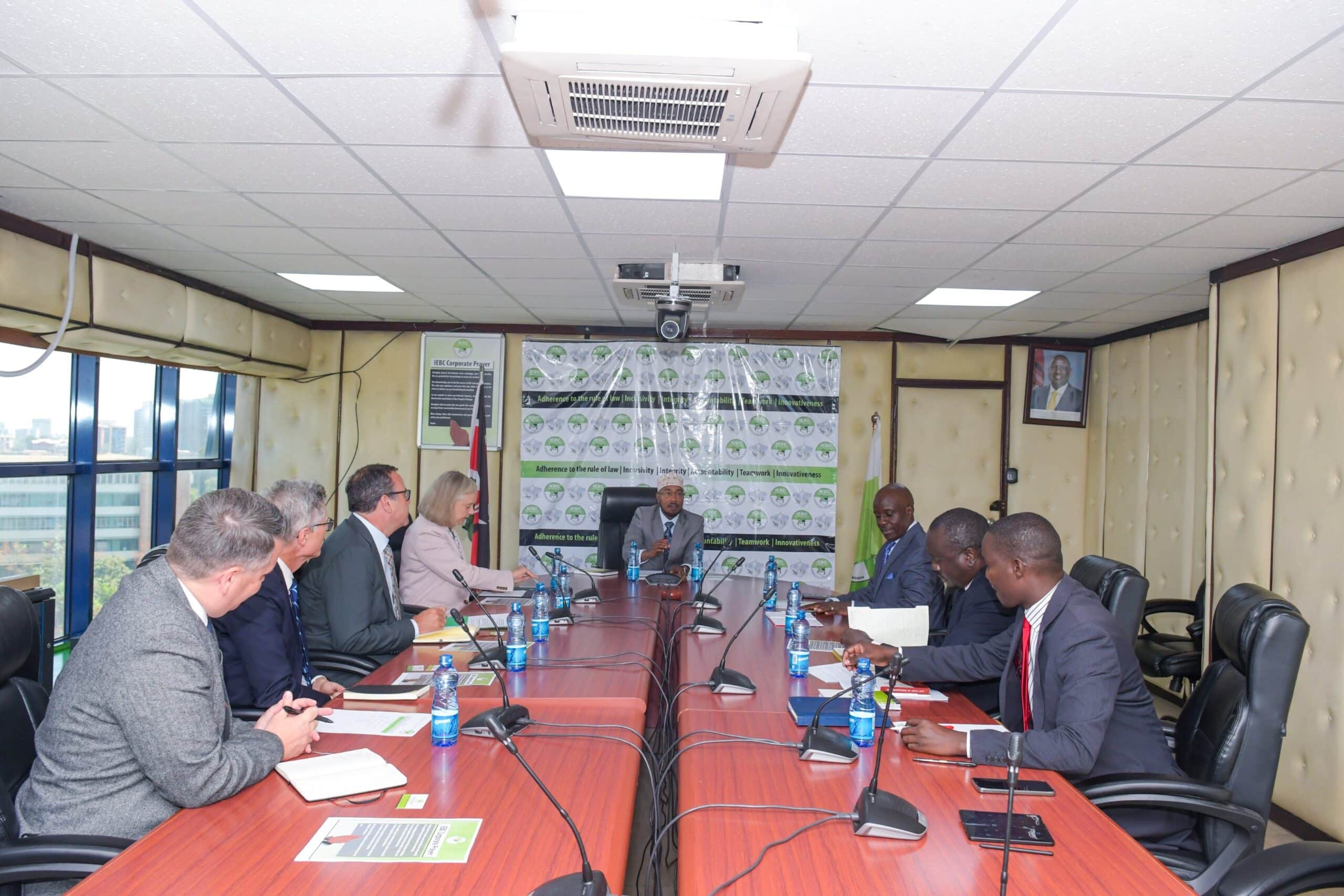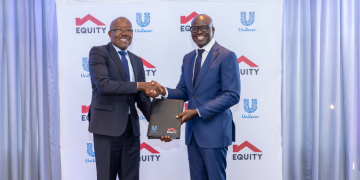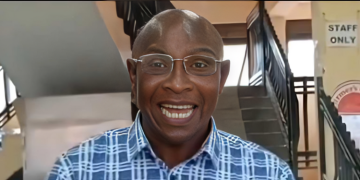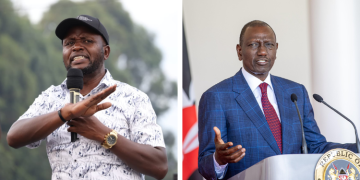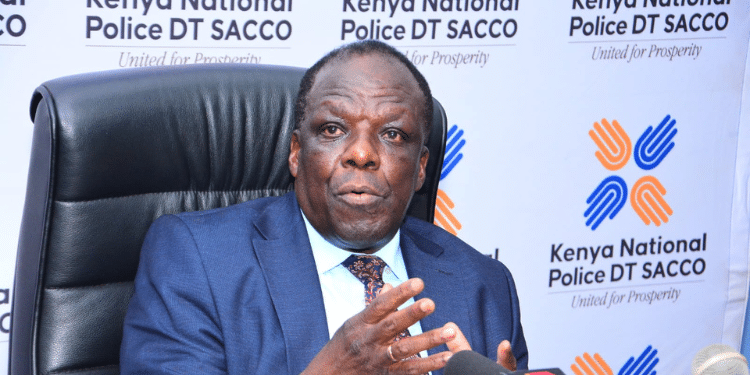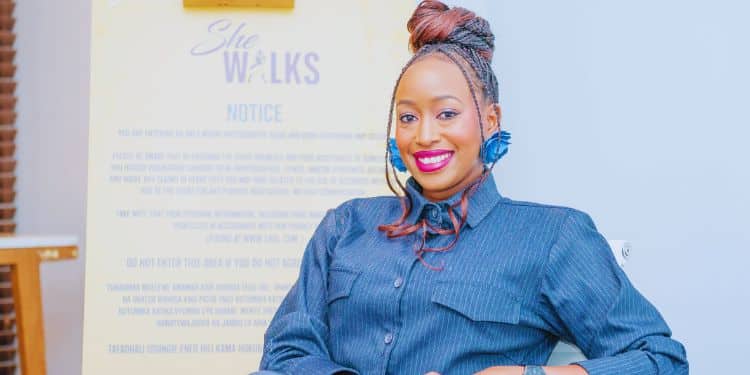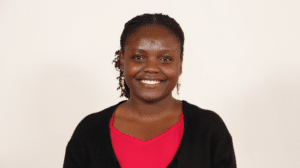Janet Mbugua is a household name in Kenya, a journalist, actress, author, and gender equality advocate.
From anchoring prime-time news to founding the Inua Dada Foundation, she has worn many hats, each reflecting her deep commitment to impact-driven work.
The Kenya Times journalist Joy Kwama had the opportunity to sit down with Janet Mbugua on the sidelines of the What Women Want Summit 2025 in partnership with SheWalks, a platform under Johnnie Walker, to discuss her journey, the sacrifices of advocacy, and the delicate balance between influence and personal well-being.
She opens up about her defining career moments, the responsibility that comes with a public platform, and why young people must take up space in leadership and activism.
Janet has used her voice to amplify gender equality, menstrual health, and youth empowerment. But what drives her? What has she learned from navigating the limelight and stepping into the challenging world of activism?
In this candid conversation, she opens up about her motivations, challenges, and why she believes young people must take up space in leadership.
Also Read: Ex-Citizen TV Anchor Janet Mbugua Makes Comeback

Q. What have been the pivotal moments that have shaped the journey of Janet Mbugua?
I think definitely when I didn’t just get into media, but particularly, one of the biggest media houses in the region, and that was in 02/2011 when I joined.
It was pivotal because it was a platform bigger than I had ever anticipated, and I realized later that it offered me a lot of other opportunities. I think that’s where I started doing a lot of MCing and moderating.
And I think the pivotal moment for that kind of work was when I moderated the ICPD 25 conference in Nairobi in 2019 because it was a global conference happening in Kenya. That then opened my pathway to MC and moderate a lot of global events, which I’ve done to a point where I can’t even count how many I’ve done, especially in the last three years.
Notably, the biggest one I think for me, the one I’m pretty proud of was Goalkeepers 2024. I was the first Kenyan ever to host it. And it’s just a very pivotal platform because of the work that, the Gates Foundation do. But just being able to be in a room with all those people and be the one who’s hosting it was I was very it was a very pinch me moment.
And I think I have many more pinch-me moments to come.
Q. You have had a lot of firsts. How has your journey impacted other women who are watching?
It’s what they tell me. I think I’m just being me and leaning into a passion and doing the work that I love.
But I think what you realize more and more is that the way the world sometimes communicates to people, especially women, is that you can’t. So when you see somebody who can or who is doing it, you are like, wait. They sold me a scam.
They told me I can’t, but she’s doing it. You know, she has opened a foundation. She is raising kids and hosting. She can.
Therefore, I can give myself permission to figure out how to find my own voice in what she is doing. If she’s doing hosting, it doesn’t mean I want to host. Maybe I want to start my own company. Maybe I want to sell flowers or candles, or open a business and do travel, you know, be a travel agent.
And I can do it because Janet is doing it. So I think that’s how it has impacted people. Even when I have gone through difficult moments, there are people who come to me and say, “It’s the fact that you just kept moving that made me wake up and get out of bed and move.” And it always blows me away.
Q. How have you been able to succeed in this journey? Because you are a very influential person. How have you been able to successfully use your influence to navigate your way into advocating for social change?
I am now trying to give myself permission to sometimes not have the answers. I’m just like, you know, because there’s a lot of added pressure. So advocacy and speaking out, it’s just something I do.
It’s who I have been. I am now seeing it in my kids. Especially the younger one. So it’s a part of who we are. It is part of who my mom is. It is something that my parents have encouraged.
But I think what happens is people start adding labels. Sometimes there is a lot of pressure, which I felt was coming with the labels I was being given, but I was also embracing them.
So people would say, we’re inviting you here as an activist to talk about the work you’ve done. I would be like, okay. In the back of my mind, I’m like, that’s a big responsibility.
So what I have done over the years is I lean into the calling because the calling is bigger than me. If it’s speaking out around menstrual equality, it’s important because if I can use my voice to bring attention to the issue, it’s not about Janet.
It’s about Janet using her platform to talk about the issue. If it’s around gender based violence and economic empowerment, the same thing. I speak about it so that there’s light that’s been shed, me and a lot of the other people who have platforms.
When it came to rejecting the Finance Bill, what I found was that I’ve always known I’m an active citizen. It forced me to look in the mirror and say, okay. What are you willing to drop because it’s no longer serving the nation and you and the people of Kenya? So, for example, I said, okay. I’ve enjoyed a lot of proximity to public figures, even some in government.
I now want to distance myself. Or I have been in rooms where things are being discussed, but not everyone is on the table. Either I’ll ask a lot of people on the table or I’ll excuse myself from the room, even if it costs me a gig.
And by the way, that’s not easy because at my big age, trying to do those things and you’re trying to raise a family. So I think the pressure that I’m now taking off myself, number one, now we have many active citizens.

Q. Please shed light on the sacrifices you have had to make for advocacy and to continue living in your purpose.
Maybe we always were active citizens, but last year showed us. That is good because it means we are now sharing, “the burden with millions of others.”
But number two, it’s also allowing me to say, in this season, if I don’t have all the answers, that’s also okay because I can replenish myself for whatever the next season is.
Because I really poured myself out for so many years and had compassion, fatigue. So I am just taking the pressure off myself now. I’m saying, I know that there are a lot of people who count on me using my voice, but sometimes I need to save my voice to self-preserve, and that’s okay.
It’s for a time so that I can use my voice for life. Because I wanna do impact advocacy for the rest of my life.
And I made that decision last year. Even though I practiced it for ten years, last year made me realize that for the rest of my life, I actually want to impact in whichever way. In order to do that, I have to sustain myself, which means sometimes pressing pause. Just self-preserve and then go back.
I want to play a role in shifting how things are done in my country, in the world, in women’s health, and in equality. How I will do it is through collaborations, conversations, and convenings. There are so many ways to do it. So there are many, many ways to do it. You don’t have to do a one-size-fits-all, especially if it’ll break you. If it’ll exhaust you, leave you broken and broke, you have to look after yourself as well. Yeah.
Q. How are you paying it forward? And what is the importance of us women paying it forward to other women?
I am very big on paying it forward. In three, four years, I should be able to take a break in the mountains and just cook and be with the boys and go to bed. The reason I’m saying that is I’m very big on seeing the next wave of women and men take up space, and I do it all the time. If there are activists who are coming up, I make sure they are in the rooms.
When you say youth-led, yeah, young people should lead. It doesn’t mean that those of us who are no longer in the youth bracket are not a part of it.
It means now maybe our role is guiding, convening, speaking, collaborating. But I think it’s important to know when there’s a new one because you see all of the people coming up. The younger people are living with their issues now. The issues that are affecting the majority of the country are affecting young Kenyans. So what are you doing? Try to speak for them.
Paying it forward should come naturally. And if it doesn’t come naturally, you have to ask yourself, what is the reason you are doing it? Is it for clout?
It may not come overnight to some people. Maybe they are grappling with their own insecurities. Doesn’t mean they’re doing it on purpose. But I think you should take time to figure out what you are now. It doesn’t have to look the same as it did ten years ago.
Q. What advice would you give to someone who is trying to, day by day, live within their purpose?
I think when you have a conversation with yourself, everybody in this world has something that bugs them. We are afraid sometimes to speak it out, or we feel like now, even if I say it doesn’t hold weight.
For example, my kids, who are six and nine, I can tell the nine-year-old is a little bit concerned about things to do with the environment. That was enforced. He’s just like, “It’s just wild how you guys, your generation, just throw things outside the window.”
So I’m like, okay, if it bugs you, what do you want to do?
I’m worried about drug abuse. Somebody else will say there’s, for example, there’s a male loneliness pandemic. I’m curious about how men are feeling in their truth.
Somebody else can say, I am very worried about teen pregnancy. Or whatever it is, intergenerational trauma. The next question is to ask yourself, what can I do where I am with what I have?
Start by identifying a passion point because when you identify it, do some research about it, talk about it, eventually, it could form part of the purpose you are walking in.
It doesn’t mean that every day I am addressing teen pregnancy. It just means every day I am aware of this issue, and I have to remind myself that if there is a room or a program or an event, I will lend my voice or my resources to stay part of the movement and conversation.
And that way, you are living your purpose for life because there is room to exercise your purpose in this life. Even as you’re exercising your purpose, remember to be careful about your mental health and pouring back into yourself because those two truths can live together. I am realizing it now.
It came to me two years ago when somebody talked about radical self-love. From that day, I have been very intentional about not trying to solve everybody’s problems.
Also Read: Ladies in Media Awards, Janet Mbugua, Kate Actress Among the Nominees
Q. What do you think is the role of storytelling in empowering women? And what hope do you have for the future of storytelling?
Inua Dada started through storytelling. It was through the stories of two girls who were using chicken feathers and goat hide because they didn’t have pads. It was their stories that led the change because that story aired on prime time news. That had never happened before.
Suddenly, people are being forced to watch a story about periods on the news at 9 PM on the most-watched station in the region.
People were angry. The government was asked, “Why haven’t you put money into sanitary pad allocation?” And that started another movement.
Storytelling is the only way that we can continue to keep issues alive. It offers insights into how we can be creative in talking about an issue. People like Abel Mutua do it really well, I think.
He is a storyteller. And sometimes it’s just a story that he knows of. But because it’s a story that exists somewhere, he uses his platform to bring it to the world. That is effective storytelling. Movies, series, music, theater, podcasts, TV, radio.
But don’t tell somebody else’s story on their behalf. Invite them to tell their story. You can act as the platform, as the resource. Let them come and tell their story.

Q. Fill in the blanks: Encourage _____ instead of unpaid care work?
The obvious is to pay people. Do you know how you can resolve unpaid care work? This was a very interesting conversation I had with Caroline Mutoko and Adelle Onyango the other day.
You never argue when it comes to paying your house help. Same energy. You can curate a pay structure for the person who is staying home. Like a pay slip.
When my nanny is not there, I am doing what she is doing. I will make sure that they are up, they have showered, they are eating, and then I’m looking after them the whole day and then putting them together.
That’s what the nanny does when Janet is at work. But I pay my nanny.
So if there is a household where somebody is a stay-at-home mom, can we please, for the love of God, understand she is not chilling. I have been one, and there is no rest. It is the most beautiful, thankless job, but it’s a job. Pay women who are doing that.
There are families where the partners agree. One says that “I am going to set aside this and this because it makes sense for you to be able to do what you’re doing. Even to dash to the supermarket to buy something for the house, here is some money at the end of the month.”
Normalize paying them the way you would pay your nanny and house help.
Q. Offer women more ______ at workplaces and see them thrive.
Mental health and reproductive health awareness. Reproductive health is everything. Maternity, menstrual, postpartum, and menopause.
Our bodies are always changing. Every day, our bodies just decide to tell us a different story. It affects how we work. And we can’t do anything about it. But if we are aware and we have products in the office, that helps.
Two, just information on women’s mental wellness, and the third one is on women’s rights, access to rights.
Q. Let women pay for ______ instead of sanitary towels.
We shouldn’t be paying. On sanitary towels, we need a conversation around either subsidizing the rate, making it free in some underserved communities, making them reusable, or just not paying for them.
That comes down to choice. Maybe my choice is I want to pay to take a holiday with my family. So I think give them the choice to pay for whatever they want.
Give people choices. Give men choices, but women have significantly fewer choices than men. It is a statistic. It’s a fact.
Allow women to have more choices because if you have more choices, then you can exercise some element of permission to do the things you want, which, by the way, comes back to serve the family and community.
Follow our WhatsApp Channel and join our WhatsApp Group for real-time news updates.




